“Yacht Rock (laughs)… where’s my fucking yacht? I played on all those records…”
Steve Lukather “Toto”
I came late to the Max documentary about the so-called “Yacht Rock” music genre, mostly because I quite like most of the musicians and bands who are a part of this bizarrely-named sub-category of music, and I always thought that the nickname was dismissive and insulting. But when I learned that almost all of the most important musicians of the genre agreed to take part in the documentary, “Steely Dan’s” Donald “why don’t you go fuck yourself” Fagen being the one notable exception, I decided to box up my misgivings, put them up on a high shelf, and give it a go.
It’s a really fun documentary, an “if you will, rockumentary”, and I’ve already managed to watch it twice.
More than that though, as legacy entertainment companies of every variety continue to struggle in 2025, there is much to learn in this piece about the bustling creative communities of the 1970’s which helped to define our American culture, as well as the political, cultural and technological forces which would eventually conspire to destroy them.
The Commoditization of Creativity
The first thing the “Yacht Rock” “Dockumentary” taught me about the L.A. music scene of the 70’s is that musicians and songwriters of the period created music by way of an artists’ colony where everyone knew each other, spent time together “creating” and where musicians constantly wrote and performed on each other’s records. Steve Lukather estimates that he played on at least 2,000 records during the Yacht Rock era and that his “Toto” bandmate Jeff Porcaro may have played on as many as 5,000, despite the drummer dying very young at the age of 38. One of my favorite quotes in the piece comes from journalist Alex Pappademas who says, in a reference to “Steely Dan”, the band which birthed the Yacht Rock genre, “by the Katy Lied album, the band is essentially Donald and Walter and whoever is there that day.”
This detail struck me because it’s also the way the movie business operated during that same time period… the period which launched Hollywood’s lucrative blockbuster era. In my opinion, the best available book on Hollywood history is “Easy Riders, Raging Bulls” by Peter Biskind, and I would urge anyone thinking about pursuing a career in Hollywood to read it. It’s been almost thirty years since I read it and I can still vividly remember Biskind’s descriptions of the Malibu artists colony where folks like Steven Spielberg, John Milius, Mia Farrow, Margot Kidder and others met up to swap ideas and backend points. The free-wheeling, “what’s mine is yours” collaborative nature of the Malibu colony, according to the book, was how Milius’ famous USS Indianapolis speech wound up in “Jaws.”
Bob Rafelson and Bert Schneider created a similar colony of artists at “Raybert Productions” (later BSS Productions) where long intense collaborations between great writers, directors and actors delivered some of the most iconic films of the period… films like “Easy Rider” and “Five Easy Pieces.”
Yet another colony was created by George Lucas and Francis Ford Coppola, up north in San Francisco. This one was called America Zoetrope and would create parallel tracks of creativity that would give us “Apocalypse Now” and “The Godfather” on one hand and “Star Wars” and “Indiana Jones” on the other.
This is how creativity works best in any industry of artists. Making a movie, like making a great record, is a team sport, and it takes as long as it takes. Artists need time and space to create. The process cannot be commoditized nor can it be put on a production line, not if you expect the quality to remain high.
Unfortunately, as the popularity and cultural relevance of both rock music and the movies exploded in the 70’s and the 80’s, Corporate “smart” money began flowing into both industries looking to capitalize on that magic place where, in the late 70’s, art and commerce appeared to meet. And this is the point at which the need for “content” delivered on an assembly line schedule began to outstrip the abilities of the creative people actually making movies and music to continue delivering quality art in a timely manner. It took some time for the damage to become apparent, but it was largely the insatiability of corporate “content” requirements, turbocharged by the transition to digital streaming, which eventually killed these twin golden geese.
You can no more rush a great movie than you can rush a great record, as the folks at Disney are learning today, as the butcher’s bill of trying to get Star Wars and Marvel movies on a “once every 6-12 months” schedule is coming due. In the same way, many of the great albums of the 70’s and 80’s took months (or even years) to record, a fiscal uncertainty which wreaks holy hell on Record Label P&L statements. It should surprise no one that after fifty years of increasing corporate control, there are almost no successful mainstream “bands” selling lots of records anymore, and Hollywood seems to have forgotten how to make movies people actually want to see.
The Politicization of… Everything
“There was more of an open feeling about all music in general with musicians. I heard it it described as cross pollination. You could play anything in the 70’s. There were no rules.”
Brenda Russell
Early in the Yacht Rock documentary, there is a short video montage of period footage which lets us know that we are in 1977. On screen we see footage of Elvis Presley’s death announcement, The Dodgers playing baseball, the “Three’s Company” opening credits sequence, and footage of the premiere of “Star Wars” at Grauman’s Chinese theater… underneath this footage, amidst all the ambient noise and human chatter of the period we hear an anonymous “Star Wars” fan say of the movie, “and we just had so many (fans who had) burned out on all the social commentary movies we had.”
Here in 2025, where every major studio film release seems mired in political controversy of one kind or another, this anonymous fan’s lament seems more poignant and relevant than ever. And it should feel very familiar to any American who has tried to engage with pop culture during the last decade, only to discover athletes kneeling for the national anthem, movie stars dumping on our favorite movies and Oscars telecasts that open with “land acknowledgments.”
Now, perhaps it’s the gauzy haze of time and distance which makes it seem like politics was less present in the music business of the Yacht Rock era, but I think it’s more likely the case that the music community of the 70’s was primarily about creating great records, rather than political score-settling.
To that point, in the Brenda Russell quote I included above, she is talking about the fact that the bands of the Yacht Rock era incorporated both Jazz and R&B into their sound, two quintessentially American music genres which were pioneered primarily by black musicians. Now, read the quote again and pay close attention to what’s missing from Russell’s assessment of the period…
Two words are missing… “Cultural Appropriation.”
“You had these sensational white musicians who had been acculturated on black music styles… and they could play that music authentically. They were not musical tourists. They were kind of musical cosmopolitans.”
Jason King “music scholar”
Artists, both black and white, borrowed from each other liberally in the 70’s and no one thought to complain about it because everyone understood that it was a mutually beneficial arrangement. While black audiences were discovering “Steely Dan” and “The Doobie Brothers”, white audiences were being exposed to the black artists who inspired those bands in the first place.
A decade later, black artists like “De La Soul”, Warren G and Nate Dogg would return the favor by sampling songs from the Yacht Rock era and re-introducing that sound to a whole new generation of music fans. It was the purest distillation of the economic theory that a rising tide lifts all boats.
“For me growing up, a lot of the artists we listened to, it just goes by melody, it goes by oh that’s funky or it’s soulful. And a lot of those artists, we didn’t even know they were white artists. You hear them on the radio, you get a vibe, all your friends are singing it. Then later on you buy the album you go, OH!… oh he’s not black… OK.”
Prince Paul “De La Soul”
Collaboration was the name of the game in the Los Angeles music scene of the 70’s and to hear the musicians of the era tell it in the documentary, no one cared what you looked like, they only wanted to know if you could play. One of the greatest, most popular albums of all time, Michael Jackson’s “Thriller” was created by a wildly diverse group of artists and creative minds (Jackson, Jones, Lukather, the Porcaro brothers, McCartney, Paich, Eddie Van Halen, etc.). Great ideas and talent seem to have been the currencies of the realm… skin color was totally irrelevant.
Which stands in stark contrast to our current political moment, where it seems that everything in entertainment turns immediately into a political fight. Music and movies are meant to be joyful, but politics is an ugly business… and the injection of politics into movies and music has done much to dampen audience enthusiasm for both art forms.
A couple of recent examples spring to mind:
In 2023, previously unknown folk singer Oliver Anthony released a song on YouTube called “Rich Men North of Richmond” which became a sensation overnight. Despite the fact that lyrically and thematically it was no different from a typical Bruce Springsteen or Bob Dylan song, “Rich Men North of Richmond” became an immediate political hot-button. Those on the Right claimed it as the new populist anthem of the forgotten blue collar man and those on the Left derided it as the pathetic whining of a white man worried that he was being replaced by people of color.
I would suggest that neither explanation accurately captured Anthony’s intentions. But by the time most of us heard the song, it had already been put into a political frame which rendered the song impossible to appreciate on its own terms. You weren’t simply allowed to like it or not like it, you had to either be for it or against it. In the end, the poor guy learned his lesson about wading into politics via popular music, and he is already talking about abandoning the music business altogether having decided that the juice isn’t worth the squeeze.
That same year, country star Luke Combs released a cover of Tracy Chapman’s “Fast Car” which went to #1 on the country charts. This prompted ”culture writer” Emily Yahr at The Washington Post to write an article in which she wrote, among other things, "Although many are thrilled to see ‘Fast Car’ back in the spotlight and a new generation discovering Chapman’s work, it’s clouded by the fact that, as a Black queer woman, Chapman, 59, would have almost zero chance of that achievement herself in country music.” On social media, Yahr was ratioed to the moon, and deservedly so. Anyone whose mind hasn’t been so clouded by political poison that they can no longer think straight remembers that “Fast Car” made Chapman rich and famous back when it was first released (it even got airplay on my local rock station), and that she won multiple Grammy Awards and world-wide recognition for her achievement.
But this episode proves the degree to which political controversy of an unhealthy kind has taken over the entire entertainment business. Not just music, but movies and TV too. In a year where unnecessary political provocation destroyed “Snow White”, a movie which should have been a huge financial success for an ailing Disney, hyper-partisan politicking has become the instant go-to knee-jerk reaction of America’s culture warriors. Taking time out for reflection or nuance is not allowed… to quote the motto of the Cobra Kai dojo in “The Karate Kid”… one must always “strike first, strike hard, no mercy, sir!” Most of the journos who attacked Combs never even did a basic google search to find out if his cover of “Fast Car” was endorsed and supported by Chapman (it was), because they weren't selling news, they were selling controversy. Anger and division drive eyeballs, eyeballs drive clicks, and clicks mean money.
The catastrophizing of modern political activists aside, there’s no doubt that race relations, cultural segregation and the plight of non-white Americans were all worse in the 1970’s than they are now, and yet in the artist communities of Los Angeles during that time, there seems to have been an instinct for colorblind apolitical collaboration that is too often missing these days. It’s a shame, because that instinct was a critical part of the thriving artists’ communities which gave us great American art of a kind we have not seen much of since.
“I never had any problems, cuz as soon as they heard the white kid play, the white kid’s accepted. Do you got the right groove man? Can you play in tune? Whatever… that’s all that matters.”
Jay Graydon (session guitarist)
We’ve come a long way, baby… backwards, that is.
If you enjoyed this essay and would like to support the work we do here at The Continental Congress, please consider becoming a paid subscriber. Thank you, so much, for your time and your patronage!

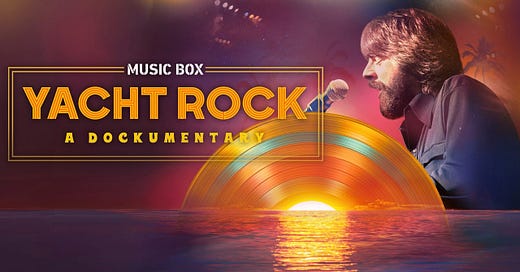


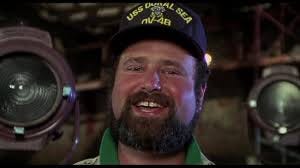
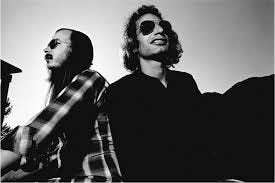
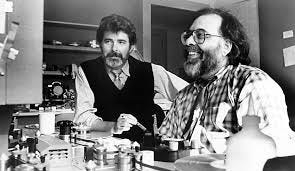
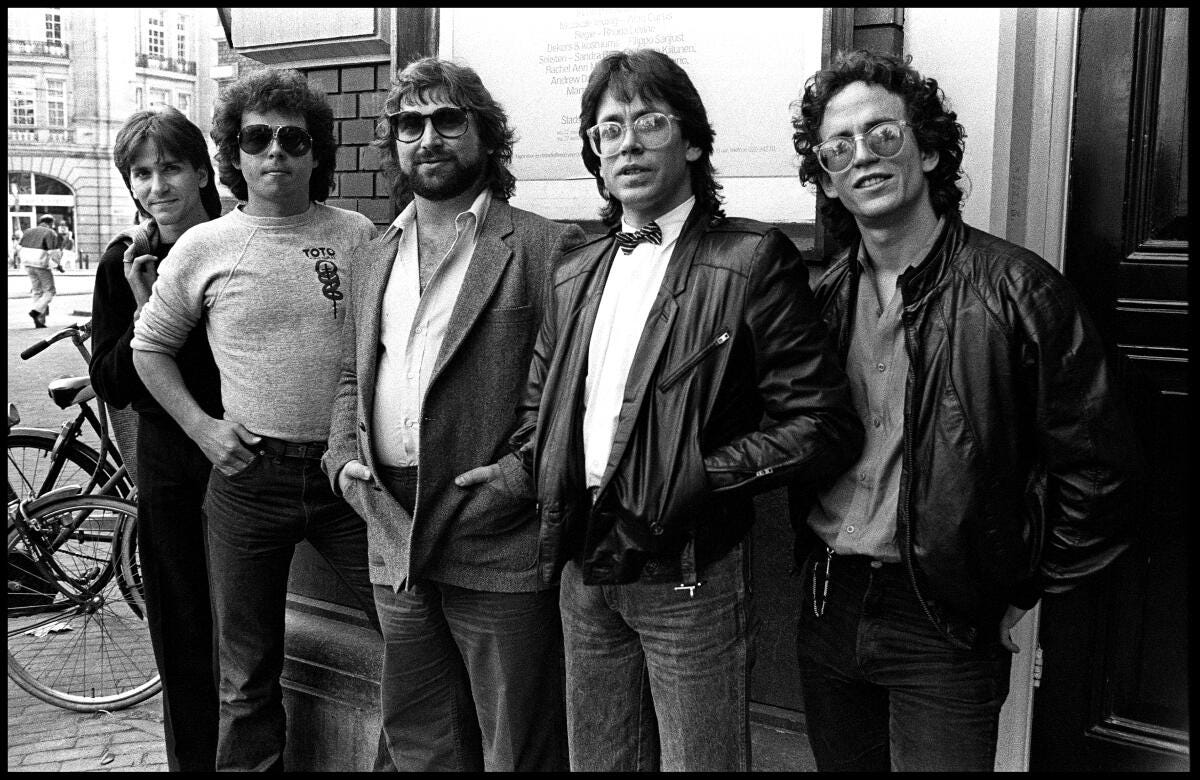
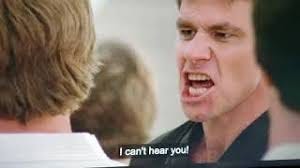
Very well said. The "Diversity is our strength," advocates' actual goal is to strangle diversity and keep us all in our lanes. The actual virtue of diversity is not in 'authenticity' rather it is in creativity which is sparked by imaginative people being exposed to different ways of thinking and doing things, who then incorporate them in ways never before seen.
I wrote about the regrettable and counter-productive reaction to Combs and Chapman. https://frank-hood.com/2024/02/06/haters-gonna-hate/. If one scorns those who see value in the 'oppressed culture', one is merely condemning the oppressed to further immiseration. It becomes increasingly difficult to believe that our cultural police intend anything else.
Regarding the community spirit of the music scene in that era - the British journalist and historian Pete Frame used to draw up these elaborate "family trees" of who played with whom and how so many careers and albums came out of these collaborations. I just tried to access his website only to discover it's no longer available. His archive at the University of Glasgow doesn't have much online. If you spot any of his large-format collections in a used book store or on Ebay they are well worth your time. Meanwhile, the BBC special "California Dreamin'" can be found online in several spots (depending on your region) and is based on his family tree of that era.
Fascinating article, Mr Washington!